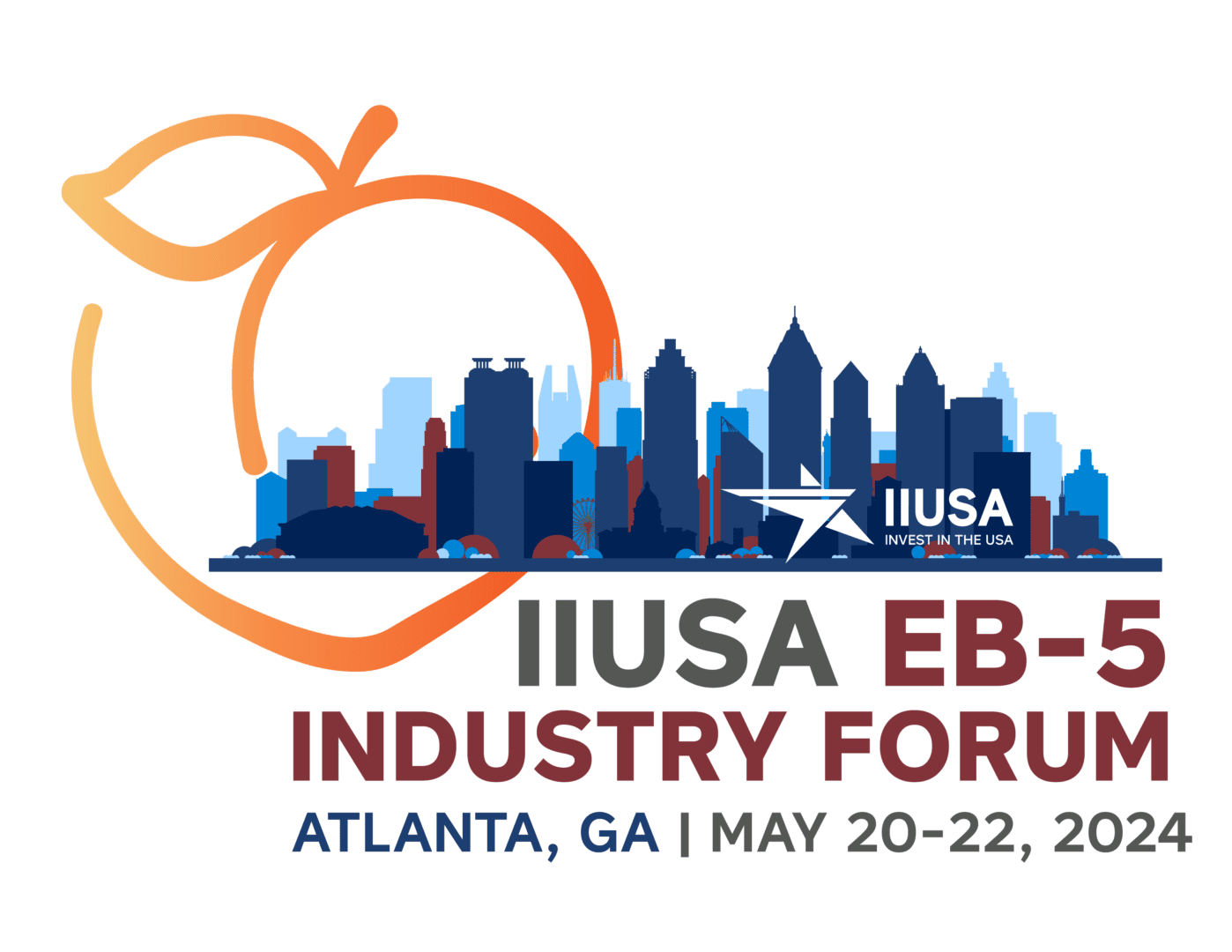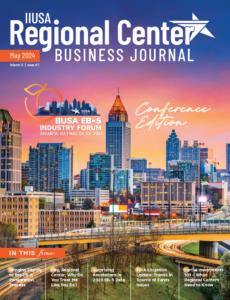 by Robert C. Divine, Vice President, IIUSA; Shareholder, Baker, Donelson, Bearman, Caldwell, & Berkowitz
by Robert C. Divine, Vice President, IIUSA; Shareholder, Baker, Donelson, Bearman, Caldwell, & Berkowitz
Everyone is reading the news about President Trump’s executive order “travel ban” for people “from” the previously identified seven “countries of concern”: Iran, Iraq, Libya, Somalia, Sudan, Syria, and Yemen. And with legislative and regulatory proposals about EB-5 changes afoot and the need to spend your time singing the praises of EB-5 to support regional center program extension, you don’t need to waste time reading irrelevant things.
So here’s what’s relevant to the EB-5 industry. The relevant agencies are ordered to figure out a more comprehensive set of screening efforts for visitors and immigrants. The agencies are also directed to figure out what information is needed from home country governments and whether those governments will provide that information, but this seems to be focused on the refugee program and particularly Syria. That part has not been challenged, yet.
But for 90 days pretty much all visas and admissions for people from the seven countries were to be stopped while the agencies did their thing. At least one court order has restrained the 90 day ban, and the Ninth Circuit just refused to overturn that restraining order, citing due process and equal protection grounds tied to background statements of Trump about his purpose behind the ban. A preliminary injunction hearing should now ensue, and appeals from that can be expected either way. Other legal challenges are afoot, and the issue seems destined for a period of litigation and perhaps resolution in the Supreme Court at some point.
So what are the implications for EB-5? USCIS has issued an internal memo stating that (regardless of any legal challenges) Trump’s order does not affect any USCIS adjudications, which includes I-526 petitions, extension or change of temporary stay within the U.S. (such as visitors, students, H-1B, etc.), adjustment of status to conditional resident for those with approved I-526 and available visa number, I-829 to remove conditions on residence, and naturalization– even for people from the seven countries. One could expect USCIS officers to be at least a little more careful about adjudicating applications for people from the seven countries, but one already could have expected that, as anyone with an Iranian investor could confirm.
For now the agencies are following the court restraining order and essentially giving no effect to the ban on visas and admissions for the people from countries of concern. To the extent the courts remove their blocks on the “travel ban” aspect of the executive order, the agencies will stop holding and scheduling visa interviews for people from those countries, including visitor, student, temporary worker, and EB-5 immigrant visas. Any visas issued to those people would be “provisionally revoked,” meaning that the visas will remain unusable for being admitted to the U.S., including for people who might be in the U.S. already but go out on a temporary trip. Travel carriers would be prohibited from letting people from those countries on a vessel bound for the U.S., and CBP would refuse admission to anyone who somehow got to a port of entry anyway.
So what effects would follow the end of the 90 days, assuming the ban is not temporarily extended? It seems unlikely that meaningful specific effects on EB-5 investors and their family would linger. Again, such people already have experienced what seems like extra vetting, and the scouring of source and path of funds experienced by all EB-5 investors already seems to constitute some of the most “extreme vetting” known to U.S. immigration processing. Nevertheless, the USCIS Investor Program Office could become more rigorous in parsing and investigating source and path of funds evidence, though in our observation that already was happening. We have seen U.S. Government investigators independently contacting EB-5 investors’ former employers, bank lenders, and other parties in the source of funds requesting verification of evidence, and some early findings of fraud through these efforts are likely to lead to their expansion. Meanwhile, the USCIS Administrative Appeals Office has been affirming some rigorous analysis of types of sources and specific evidence of them.[1]
Very few EB-5 investors have ever originated from the seven countries except Iran. The latest figures available show that 28 Iranians and 9 Syrians were issued EB-5 visas in FY2016. 150 Iranian investors filed I-526 petitions in FY2015, and it is unclear whether the difference between 150 and 28 represents a low approval rate for Iranians or a long delay in adjudication, or both. Less than 30 investors from the other six countries combined filed I-526 petitions in FY2015, and 18 of those were from Syrians. At this point it seems unlikely that President Trump would expand the travel ban to other countries if he can overcome the current legal hurdles facing the current ban. The current list of seven “countries of concern” was based on designation in existing law, which was handy to try to distance the suggestions of Trump’s discriminatory animus. But who knows.
So far the Trump Administration has not breathed a word about any specific policy approach to substantive EB-5 project eligibility, the proposed regulation published in the last days of the Obama Administration, or the legislation needed to renew the regional center program in April.
Robert C. Divine leads the Global Immigration Group of Baker, Donelson, Bearman, Caldwell, & Berkowitz, P.C., a law firm of over 800 lawyers and public policy advisors with offices in 24 cities in the U.S. including Washington, D.C. Mr. Divine served from July 2004 until November 2006 as Chief Counsel and for a time Acting Director of U.S. Citizenship & Immigration Services (USCIS). He is the author of Immigration Practice, a 1,600 page practical treatise on all aspects of U.S. immigration law now in its Fifteenth Edition (see www.jurispub.com). He has practiced immigration law since 1986 and has served as Chair of various committees of the American Immigration Lawyers Association. He has served seven years as Vice President of Invest in the USA (IIUSA), the EB-5 industry trade association. Under his leadership, Baker Donelson serves a wide range of legal needs for regional centers, developers, and investors, including immigration, securities, business, real estate, tax, international, government investigations, and litigation.
- [1] See, for instance, decisions issued on January 13, 2017: pdf, JAN132017_02B7203.pdf, and JAN132017_03B7203.pdf.








